FINAL EXAM DENTAL ASSISTANT Instruments
1/59
There's no tags or description
Looks like no tags are added yet.
Name | Mastery | Learn | Test | Matching | Spaced |
|---|
No study sessions yet.
60 Terms
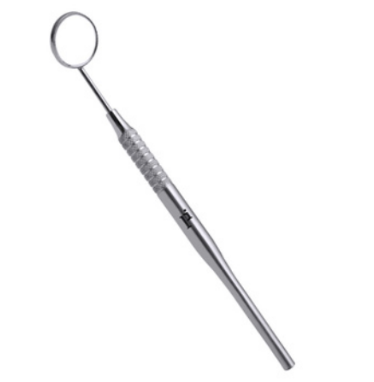
Mouth Mirror
To provide indirect vision
To retract lips
Cheek
and tongue To reflect light into the mouth
An accurate image from flat surface
mirrors, image magnified with concave mirrors.
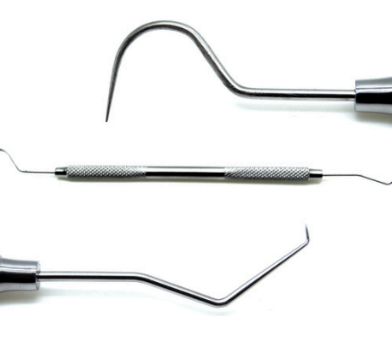
Explorer
Accurate image from flat surface
mirrors, image magnified with concave mirrors.
Pointed tips: sharp, thin and
flexible.
Orbin;
Shepherds;
Pigtail
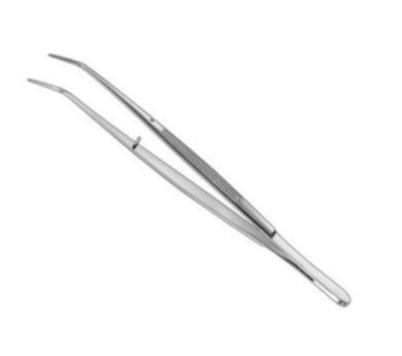
Cotton Forceps
To Grasp and/or transfer material in and out
of the oral cavity.
Plain or serrated tips variety of sizes,
angled tip
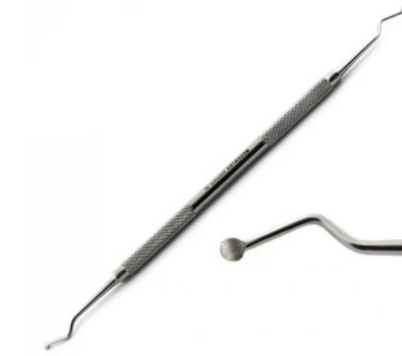
Spoon Excacvator
Functions: To remove carious dentin To remove temp
cement, provisional crowns.
Spoon-shaped with a cutting edge,
small and large sizes.
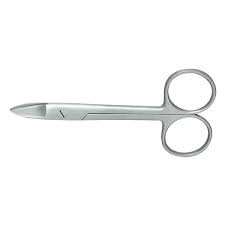
Crown/Bridge scissors
used to trim and adjust temporary crowns and bridges, and to cut gingival retraction cord during dental procedures. They are available in both straight and curved blade designs and are typically made of stainless steel for durability and corrosion resistance
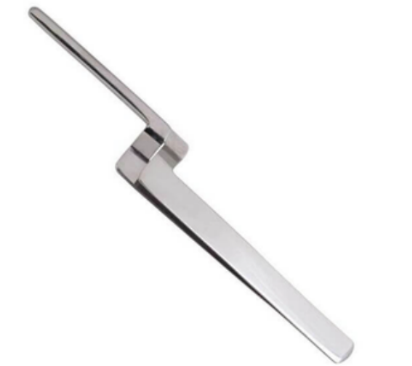
Articulating Paper Holder
To hold articulating paper in checking
patients bite
Articulating paper is blue or red,
thin to thick.
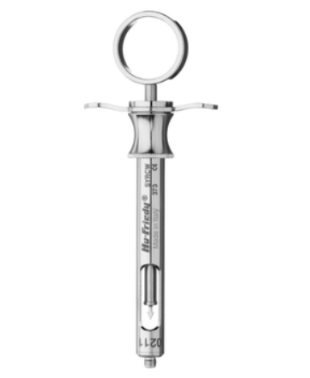
Anesthetic Syringe
To administer local anesthetic
Aspirating and self-aspirating syringe.
Aspirating syringes have a barb that inserts in the
carpule.
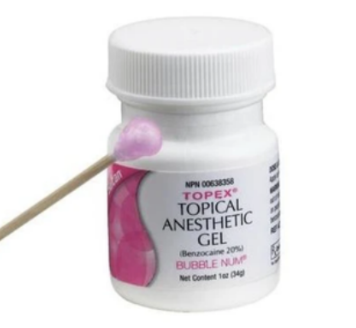
Topical Anesthetic
To aid in painless anesthesia
Gel consistency, applied with Q-tip
to the injection site, differs in color and taste
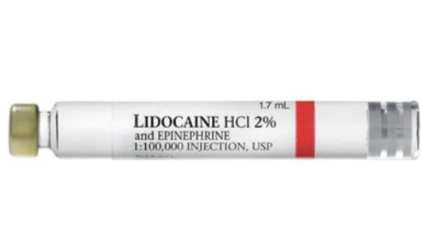
Lidocaine - Red
An anesthetic with epinephrine
red band on the carpule; most used anesthetic
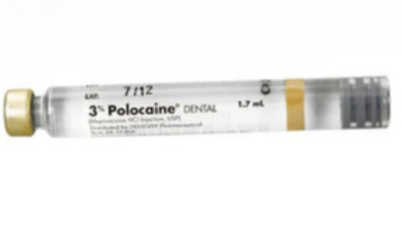
Polocaine - Tan
A non-epinephrine anesthetic, used
when patients can’t have epinephrine, e.g. HTN
patients
3 % Polocaine Plain; has a tan band on the carpule

Air/Water Syringe Tip
To rinse and dry specific teeth or entire oral
cavity
Three-way syringe: air, water, or spray
with water and air; Syringe tip: Disposable plastic or
autoclavable metal; attaches to air/water syringe on
dental unit nit
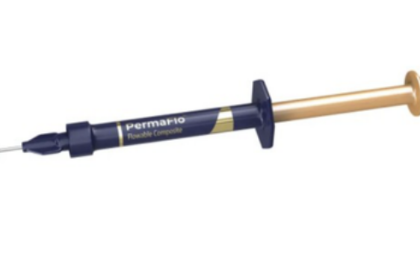
Flowable Composite
Functions: High viscosity, low filler composite, used
small areas or before placement of packable
composite, differs in shade.
Fluid like composite, with in a syringe
used with a syringe tip.
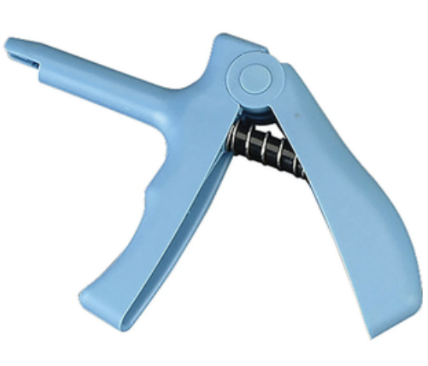
Composite Gun
Holds a composite tip, used to deliver
composite to the cavity prep
Composite tip inserts in the barrel of
The composite gun.
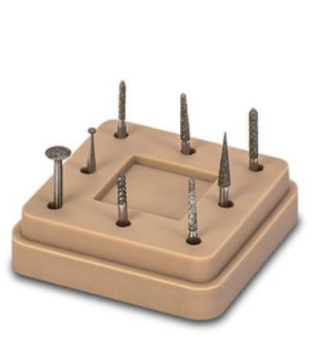
Magnetic Bur Block with Burs
To be used by inserting into dental
handpiece; to attach discs to mandrel for finishing and
polishing inside or outside of oral cavity.
Different shanks: 1. Long shanks –
straight slow-speed handpiece, 2. Short latch-type
shank – contra- angle slow-speed handpiece, 3.. Friction
grip – high speed handpiece
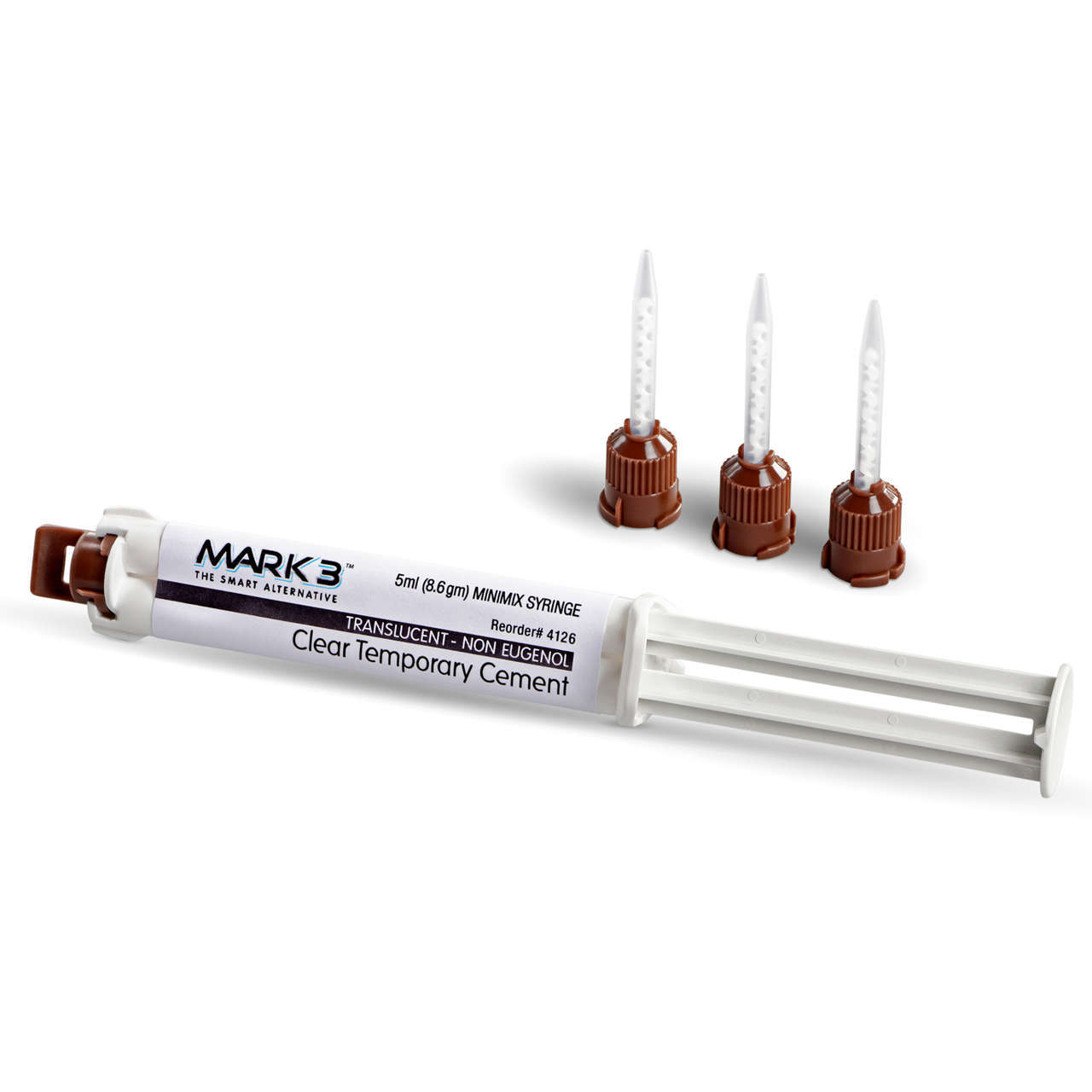
Temporary Cement
provisional cement or dental crown glue. It's specifically formulated to temporarily hold dental restorations like crowns, bridges, or splints in place while a permanent restoration is being fabricated
These cements are designed to be strong enough to secure the temporary restoration but also easy to remove when the time comes for the permanent restoration.
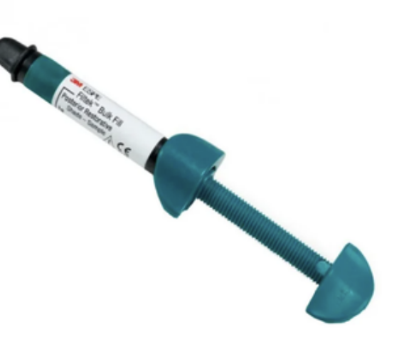
Packable Composite
Low viscosity, high filler, permanent
restorative material.
Either in a syringe or composite tip.
Composite tip requires composite gun,
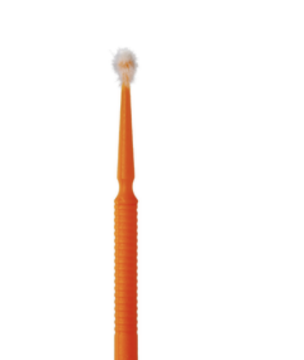
Micro Brush
Use to apply primer, dentin bond enamel
bond, sealants.
Small plastic instrument with small
fiber bristled head.
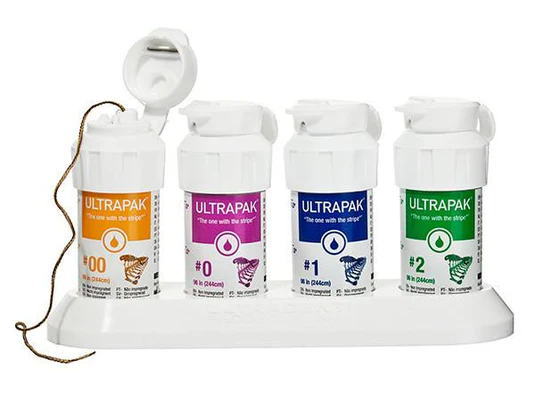
Retraction Cord
a thin, thread-like material, typically made of cotton or polyester, that dentists use to temporarily displace gum tissue (gingiva) away from the tooth. This creates a space, called the gingival sulcus, for better access to the tooth margin during procedures like impression taking for crowns, bridges, or veneers
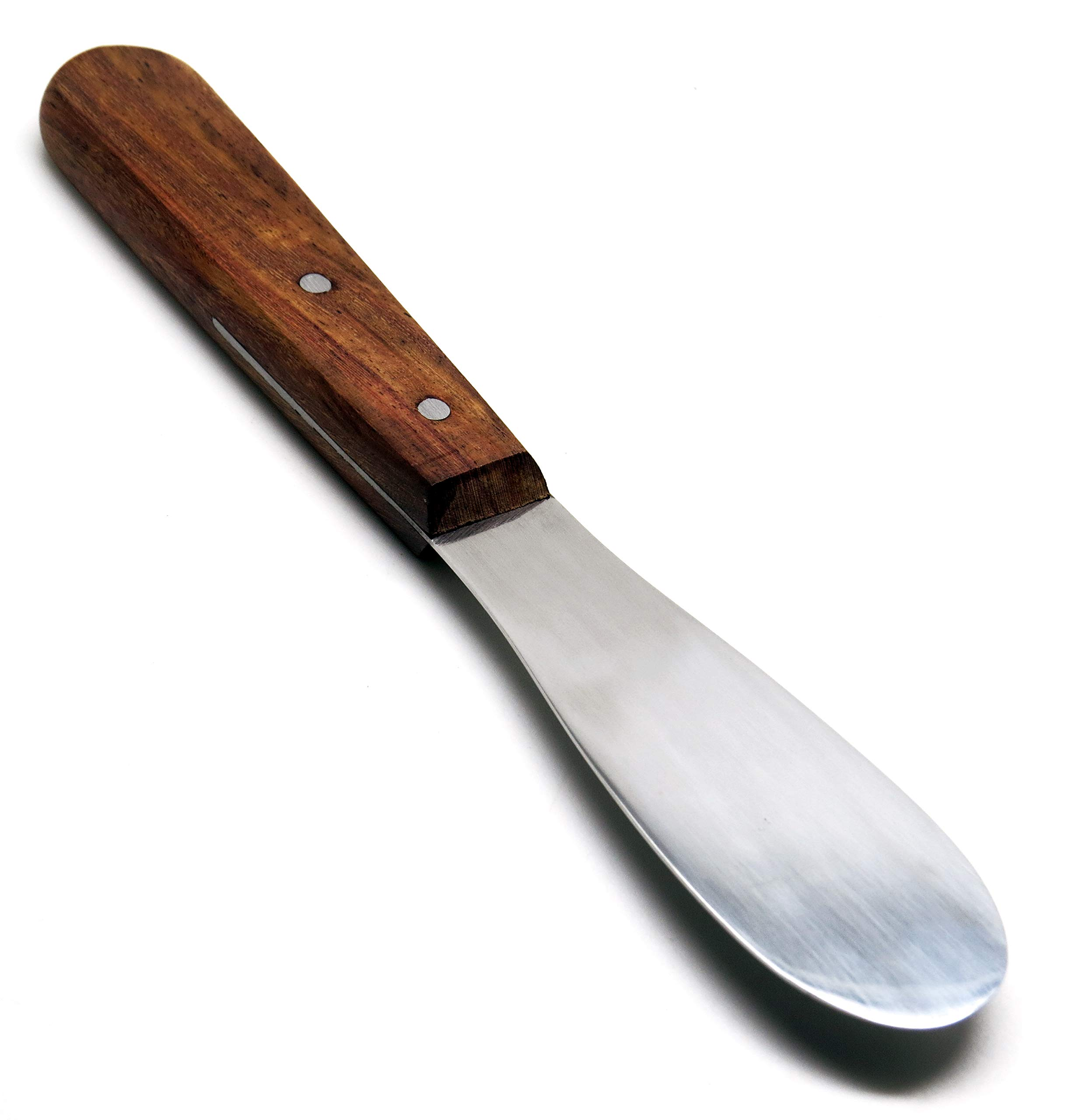
Spatula
to mix, apply, and shape dental materials like cements, impression materials, and waxes
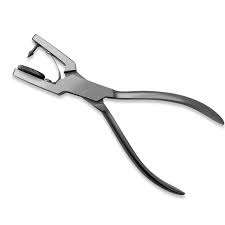
rubber dam punch
a tool used to make holes in a rubber dam, which is a thin sheet used to keep teeth dry and separate during dental work. The punch has a rotating disc with different hole sizes so the dentist can choose the right size for each tooth.
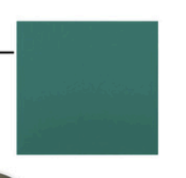
rubber dam
A thin sheet of latex or nitrile material used in dentistry to isolate one or more teeth during treatment. It creates a barrier between the working area (the tooth) and the rest of the mouth, providing several benefits for both the dentist and the patient.
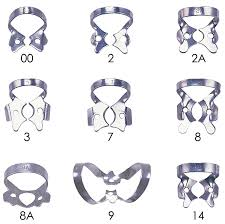
Rubber dam clamp
is a small, spring-like metal tool used to hold a rubber dam in place on a tooth. It helps keep the area dry and clean by keeping saliva and other fluids away during dental work.
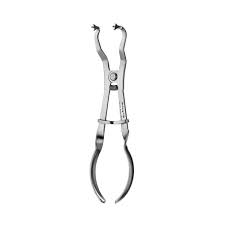
Rubber dam forceps
There are special dental tools used to hold, open, and place rubber dam clamps on teeth. They help keep the tooth dry and clean during treatments like root canals or fillings
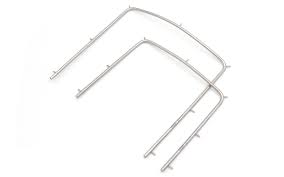
Rubber dam frame
are special dental tools used to hold, open, and place rubber dam clamps on teeth. They help keep the tooth dry and clean during treatments like root canals or fillings.
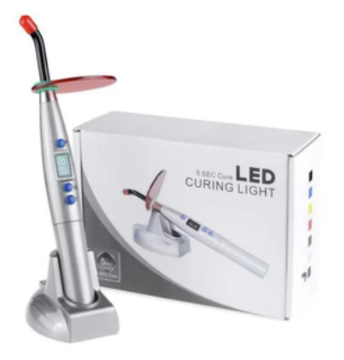
Curing Light
To harden light-cure materials, bonding,
composites, sealants, cements, build up.
Material must be cured in increments
of 2 mm or less, need to be above 300 wavelength.
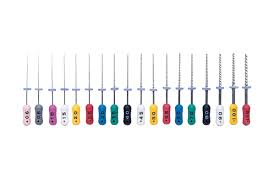
Endodontic K-files
commonly referred to as K-files, are hand instruments used in root canal treatment to clean and shape the root canal space
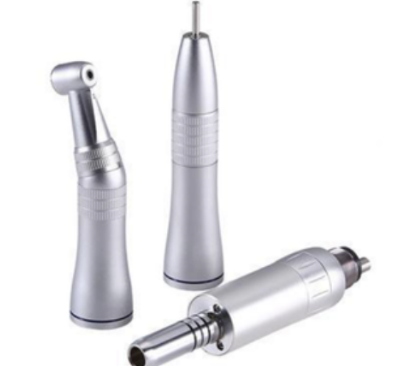
slow speed handpiece
a dental instrument used for procedures requiring precision and control, typically at speeds below 50,000 RPM
favored for tasks like removing decay, polishing teeth, refining cavity preparations, and adjusting restorations due to their ability to provide more controlled and gentle cutting
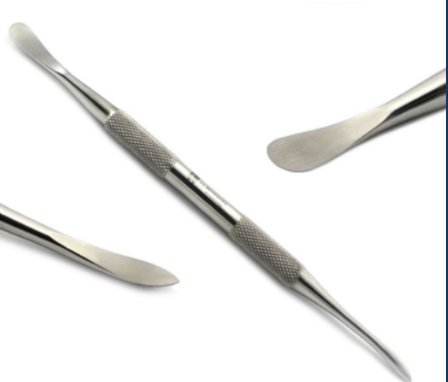
Periosteal Elevator
To provide indirect vision To retract lips,
cheeks, and tongue To reflect light into the mouth.
Accurate image from flat surface
mirrors, image magnified with concave mirrors.
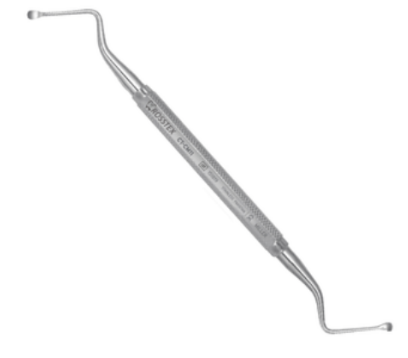
Surgical Curette
To remove debris or granulation tissue
from surgical site; to remove cyst from extraction
site or surgical site; to use for gross tissue
debridement.
Various sizes and shapes; single or double ended.
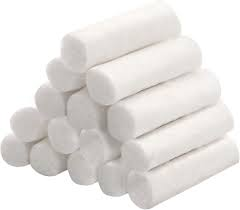
Cotton Rolls
To isolate teeth and absorb saliva Act as a
protective tissue barrier; aid in endodontic diagnostics
Characteristics: Fluid absorbent roll ~ 1 in long
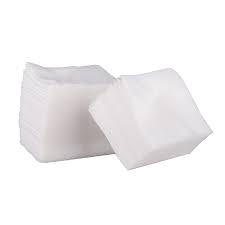
2×2 cotton guaze
absorbent dressings to manage bleeding and promote healing after dental procedures. They are also used for cleaning wounds, applying medication, and packing extraction sites
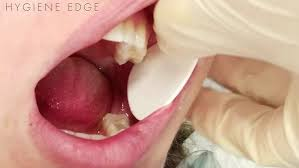
dry tip- angle
a dental product used to maintain a dry working field during procedures by absorbing saliva and protecting the cheek. It's a thin, absorbent, cellulose triangle that replaces cotton rolls, especially in the parotid area, to restrict saliva flow.
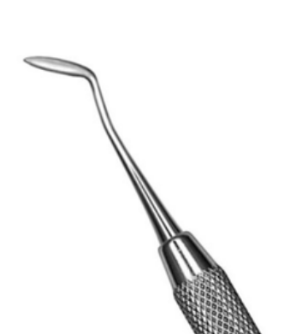
Hollenback Carver
To contour and carve occlusal and
interproximal anatomy in amalgam restorations.
Double ended, sharp stiff metal blade,
sharp point; ends are protrude at different angles;
carves other restorative materials.
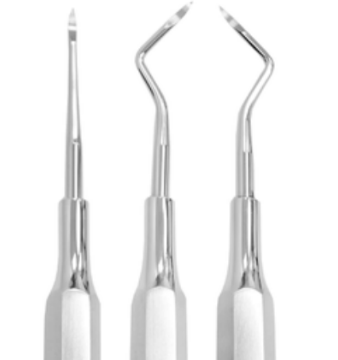
Root-Tip Picks
To lift and remove small root tips in difficult areas.
Pointed at working end . Straight or
right-and-left pairs.
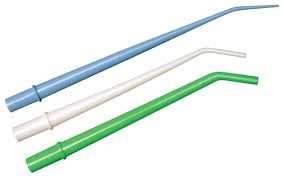
Surgical Evacuation Tip
To evacuate fluid from oral cavity and
surgical sites.
Stainless steel, autoclavable plastic, or
disposable plastic; tips narrow to accommodate surgical
site; attaches to tubing on dental unit.
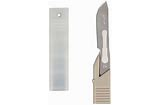
scalpel
is a precision cutting tool used for various procedures, including surgical extractions, gingivectomies (gum tissue removal), and other soft tissue surgeries. It consists of a handle and a detachable or disposable blade
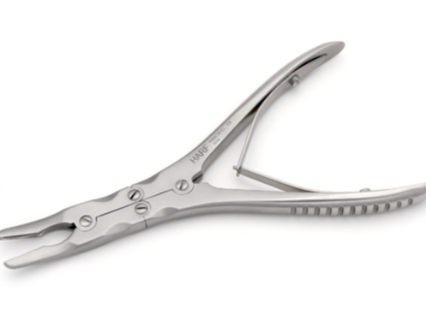
Rongeur
To trim and remove excess alveolar
bone after extraction.
Variety of sizes and angles.
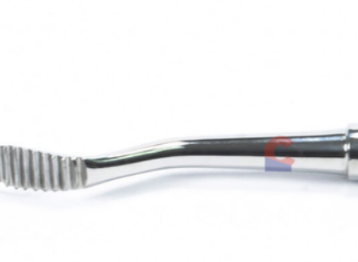
Bone File
To remove or smooth edges of alveolar
bone
Used in push-pull motion; straight
cut or cross-cut cutting end; variety of sizes, angles, and shapes.
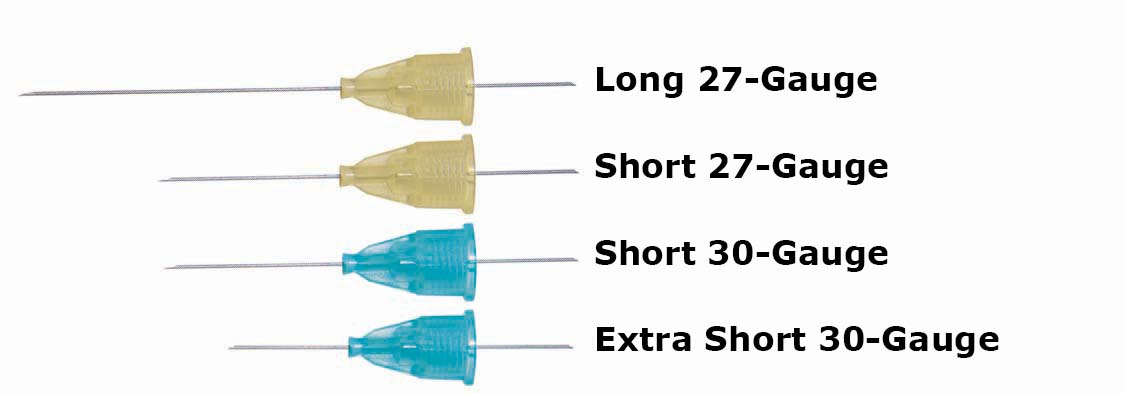
Maxillary needle
Typically short for maxillary,
typically use shorter, 25 or 27-gauge needles
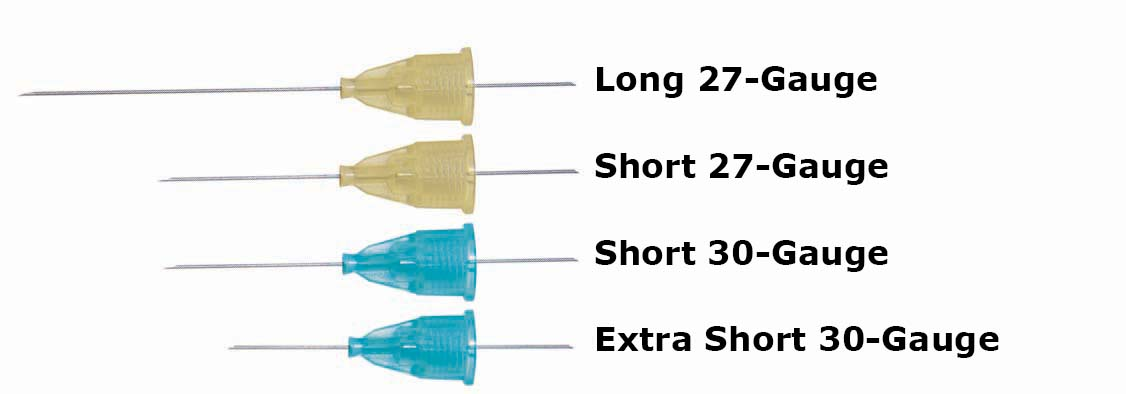
Mandible injections
often require longer, 27-gauge needles to reach the nerve before it enters the mandibular foramen
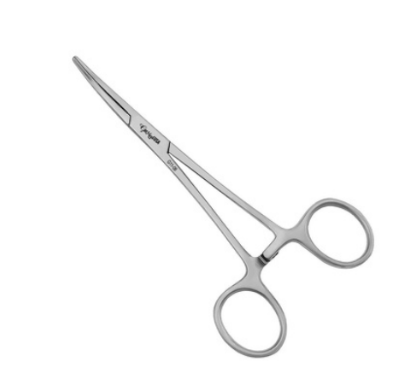
Hemostat
To grasp tissue or bone fragment
Has variety of functions. Working end
is serrated and it locks. Can be straight or curved.
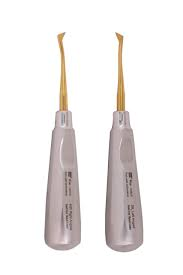
East/west elevator
dental tool with a triangular blade used to remove broken root tips. It's especially helpful when the nearby tooth is missing. The tool lifts the root piece out using a turning motion.

Maxillary Universal Forceps/ 150 forcep upper
To extract maxillary central, laterals,
cuspids, premolars, and roots.
Has straight handles or one curved handle

Mandibular Universal
Forceps/ Cryer 151 lower
To extract manibular central, laterals,
cuspids, premolars, and roots.
Has straight handles or one curved handle.
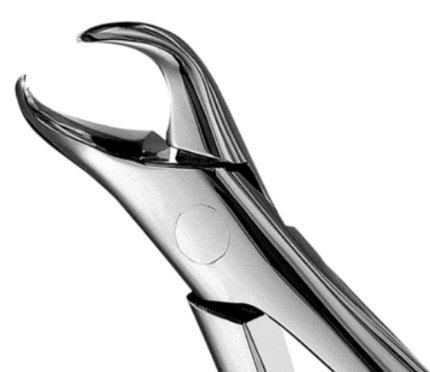
Universal Mandibular Forceps
No. 23
To extract mandibular first and second
molars.
Referred to as “Cowhorn” forceps;
straight handles or one curved handle
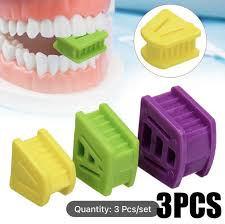
Bite Block
a device used in dentistry to control the position of the jaw, typically to prevent teeth from touching or to create space between them
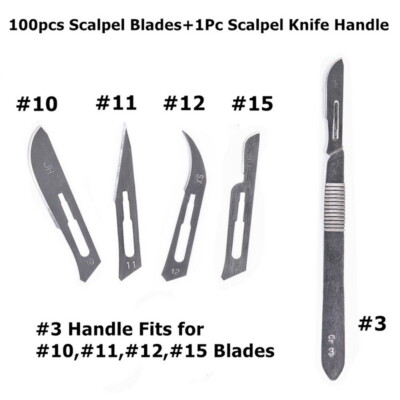
Scalpel blade 12 & 15
scalpel blade #12 is a small, crescent-shaped blade used for precise, curved incisions, particularly for removing sutures or working in confined spaces
Blade #15, on the other hand, is a small, curved blade ideal for making short and precise incisions in soft tissue, such as during gingivectomies or other minor surgical procedures
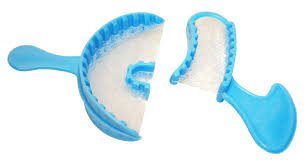
Triple Tray
Triple trays are primarily used for making impressions for crowns, bridges, and other indirect restorations, particularly for single or multiple posterior teeth
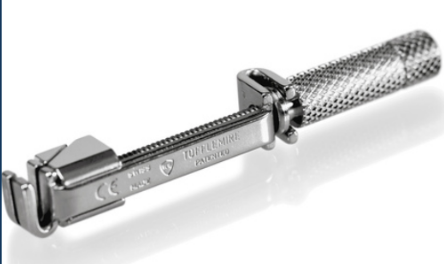
Tofflemire/Matrix Band Retainer
To maintain stability of matrix band during
condensation of restorations.
Has a guide slot, spindle, outer and inner knob.
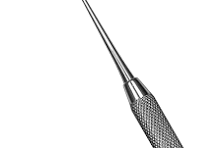
Discoid-Cleoid Carver
To carve occlusal anatomy into amalgam
restorations.
Double ended; Discoid is disk shaped;
cleoid is pointed, sharp.
versatile tool for shaping and contouring dental fillings, allowing for the creation of natural-looking tooth anatomy. It is used to remove excess material (flash) and define the contours of the restoration, including grooves, ridges, and fossae
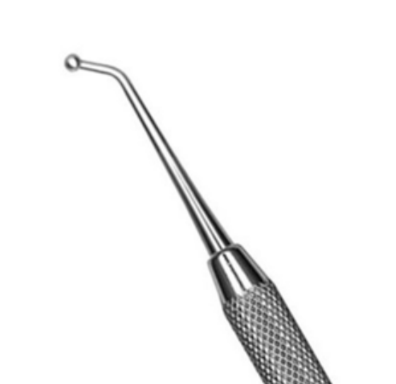
Ball Burnisher
To smooth amalgam after condensing To
contour matrix band before amalgam placement.
Burnishes alloy restorations, single or double sided.
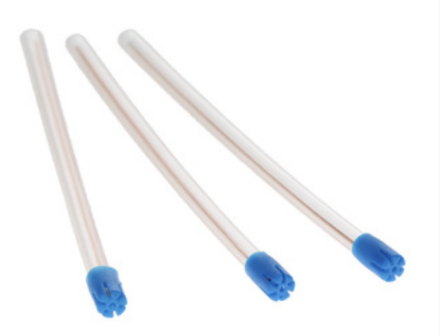
Saliva Ejector
To evacuate reduced volumes of fluid
from oral cavity.
Disposable plastic for single use;
can be bent or used straight; attaches to tubing on dental unit
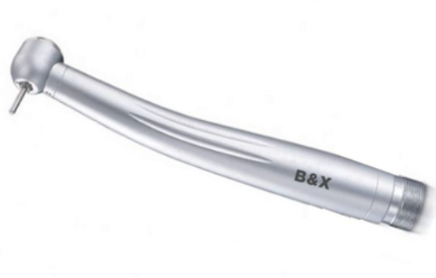
High Speed Handpiece
To be used with a bur to cut a cavity/crown
prep.
Runs on air pressure, up to 400,000
rpm’s, sprays water, friction grip.
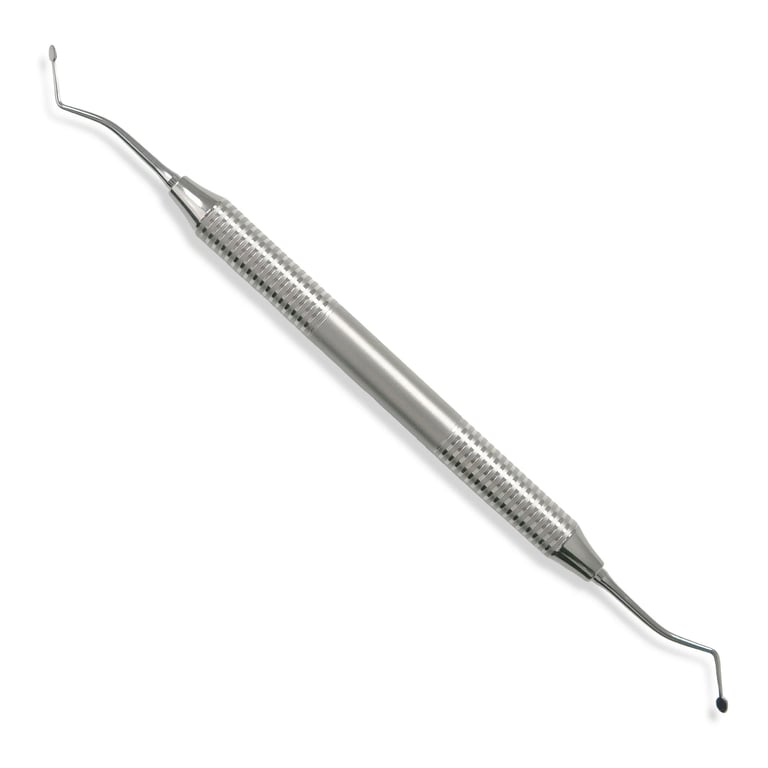
Gingival Cord
to push a retraction cord into the gingival sulcus, the space between the tooth and the gum, to temporarily displace gum tissue
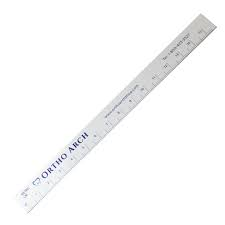
Millimeter Ruler
measuring tooth length, assessing the exposure of incisors, and determining the correct placement of prosthetic teeth
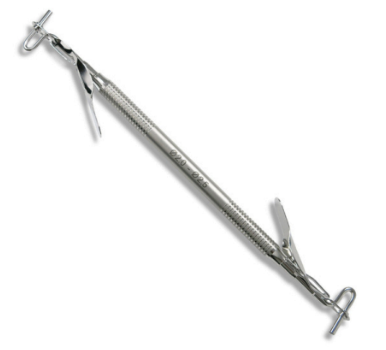
Amalgam Carrier
To carry and dispense amalgam for
cavity preparation.
Amalgam is placed in hollow tubes,
and is then placed in cavity preparation, double or single sided.
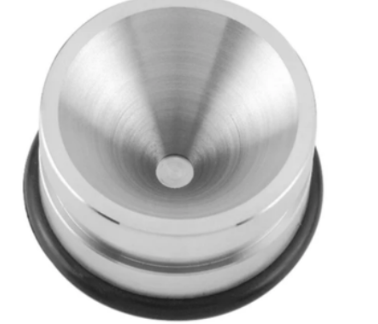
Amalgam Well
To hold amalgam before it is placed in the
preparation
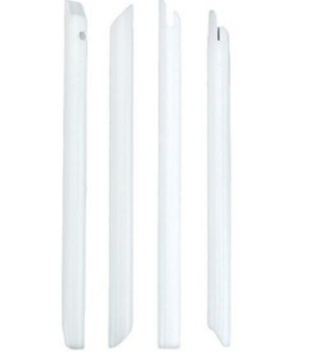
High Velocity Saliva Evacuation
To evacuate large volumes of fluid and
debris from oral cavity
Straight or slightly angled at one or
both end; stainless steel, autoclavable plastic, or
disposable plastics; attaches to tubing on dental unit
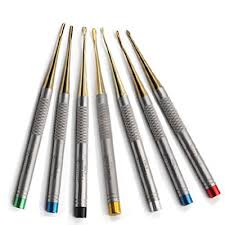
Small elevators
are thinner and sharper, ideal for navigating tight spaces and severing the periodontal ligament (PDL) during atraumatic extractions
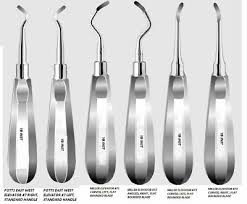
Large elevators
standard elevators, are thicker and more robust, providing greater leverage for dislodging teeth and root fragments, especially when dealing with firmly rooted teeth